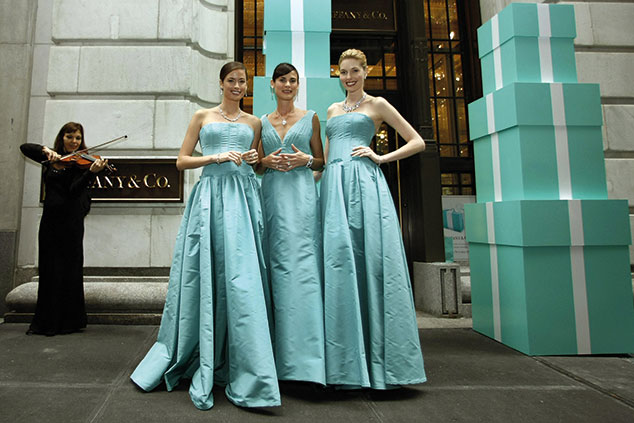
Luxury goods group LVMH has fired the “opening shot” in what could be a “protracted takeover battle” for American jeweller Tiffany, reports Adam Sage in The Times. At $14.5bn ($14.7bn counting debt), the acquisition “would be the most expensive to date for LVMH”, yet Tiffany’s board looked “likely to advise against accepting the bid in an attempt to ratchet up the sale price”. Indeed, immediately after the bid was announced, Tiffany’s share price shot up by more than 30% to $130, well above the $120 LVMH is offering, in expectation that a rival “will enter the fray to start a bidding war”.
Buying Tiffany would be LVMH’s “biggest acquisition to date” and bring the 182-year-old jeweller into a “growing stable of luxury brands”, says Rupert Neate in The Guardian. However, it is also the latest in a “wave of consolidations” in a luxury-goods industry that is “tilting towards a new generation of wealthy Chinese consumers”. Tiffany’s chief executive, Alessandro Bogliolo, recently revealed it has “moved some of its most expensive pieces” to mainland China in order to follow demand. Overall, Boston Consulting Group expects the Chinese luxury market to “grow at 4%-5% a year until at least 2025”, accounting for 40% of all spending by 2025.
Rival suitors may be thin on the ground
Tiffany’s popularity with rich Chinese customers is a double-edged sword, as it is arguably “too reliant on sales to overseas tourists”, says Ben Marlow in The Daily Telegraph. Indeed, in June Tiffany had to tear up its forecasts, blaming “falling sales to foreign visitors”, whose numbers have “dwindled sharply” as President Trump “keeps up the pressure on Beijing”. What’s more, many people still view Tiffany’s offerings as “lacklustre”. Add these two factors together and it’s unsurprising that LVMH is offering Tiffany’s shareholders “only a fairly modest profit” – you could argue that it is “curious” that it is even bidding for Tiffany at all.
Tiffany has already advised shareholders to “hold off”, notes Lisa Jucca on Breakingviews. But it’ll be hard for the jeweller to remain independent. On current multiples it will need to increase earnings by “nearly 30%” to make shareholders believe it is worth more than the $14.7bn on offer. Investors are likely to “prefer the certainty of cash today” – so Bogliolo’s best bet is to “argue for a better price”, hoping to “drum up interest” from rival suitors, such as Gucci owner Kering, or even Richemont.
“Jewellery is a category that the luxury industry can ill afford to ignore,” says Bloomberg’s Robert Williams. But a rival bid is unlikely – getting into a battle with LVMH risks “becoming an expensive proposition”. Richemont is “still digesting” last year’s acquisition of Yoox Net-a-Porter, while buying Tiffany would push Kering’s debt “to several times annual earnings” and “dilute the financial strength the company has built up during several years of rapid growth at Gucci”.